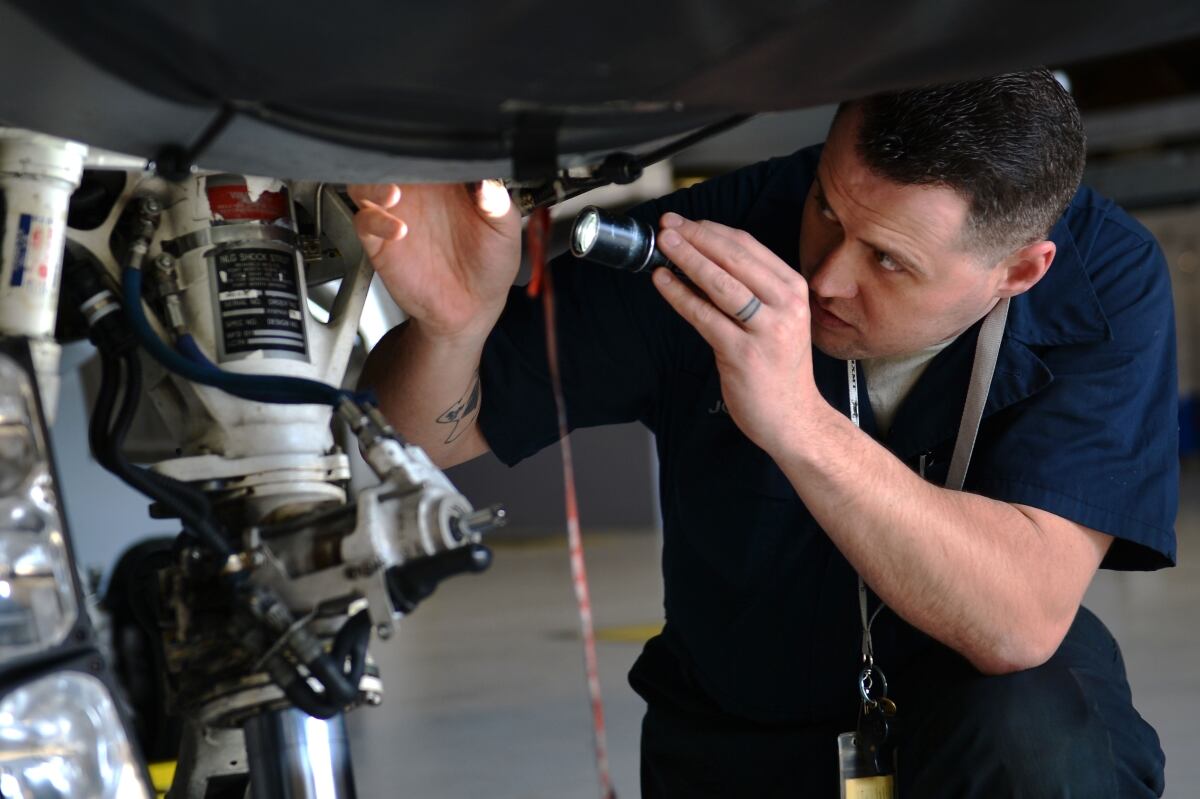The Air Force is raising its high year of tenure limits on senior airmen, staff sergeants and technical sergeants in an effort to hold on to experienced airmen longer.
As of Wednesday, senior airmen — who previously had to leave the Air Force at eight years if they were not promoted — can stay in until they hit 10 years under the changes to so-called “up or out” rules. Staff sergeants' high year of tenure limits are being raised from 15 years to 20 years, and tech sergeants limits are being raised from 20 to 22 years.
In a conference call with reporters Monday morning, Air Force personnel chief Lt. Gen. Brian Kelly and Chief Master Sergeant of the Air Force Kaleth Wright said the changes are intended to help retain airmen with technical expertise, and allow them more time to train younger airmen.
“As we grow the force, we need to retain technically skilled experts across our ranks,” Kelly said in a release posted online Monday. “By extending high year of tenure, we’re able to leverage our talented, seasoned professionals to train, develop and lead new airmen to accomplish current and future mission requirements.”
Previously, after the downsizing of 2014, the Air Force announced limited high year of tenure extensions of a year or two to retain airmen in vital, undermanned career fields such as maintenance and intelligence, surveillance and reconnaissance. But the new changes — which will take effect Wednesday — will cover all airmen in those ranks, regardless of career field.
RELATED

Kelly said that the policy will be officially implemented on Feb. 1, 2019. Airmen who are slated to separate or retire on or after that date will have their tenure automatically extended to reflect the new limits.
Airmen whose retirement or separation date falls anywhere between Wednesday and the end of January will also be able to stay longer, but they and their commanders will have to go through a process to request an exception to policy that would extend their tenure.
But things could get a little trickier for the handful of airmen who have already begun the process of moving in anticipation of their HYT-related retirement or separation, who will be handled on a case-by-case basis. For example, an airman whose household goods are already on a truck bound for his new post-military home, but who wants to remain in uniform, could be re-routed to a new assignment along the way.
The tenure changes could affect about 1,200 airmen each year, Wright said at the Air Force Association conference in September. In Monday’s call with reporters, Wright said that each year, about 550 to 600 staff sergeants are forced to separate after reaching their 15-year limits.
And Kelly said there are about 700 to 800 airmen in all three ranks who were slated to hit high year of tenure limits by Feb. 1 and would have been forced to retire or separate.
A passport, not a ticket
While high year of tenure is being automatically extended, Wright said it should not become a free pass for underperforming airmen to skate by for a few more years. Commanders and supervisors must make sure airmen show the proper competence and character as they approach the new upper limits of their tenure, he said.
This will mean supervisors and commanders have to think hard about how well their airmen are performing when the time comes to approve — or deny — those airmen’s re-enlistments before they approach their high year of tenure, Kelly said
“I consider this more like a passport, than a ticket,” Wright said. “There are some airmen who are approaching high year of tenure that probably need to go ahead and separate.”
Wright also said the Air Force will continue monitoring its ranks to make sure they stay balanced, and that logjams don’t develop in higher ranks that hinder younger airmen’s abilities to get promoted.
Extending staff sergeants' high year of tenure to 20 years means that some will be able to qualify for a retirement as an E-5, but the Air Force isn’t sure how many, or how much that might cost. Some might have chosen to switch to the new Blended Retirement System at 12 years, Kelly said. For others, the extended tenure means they have five more years to make E-6.
But Kelly said the Air Force is confident that the benefits of taking advantage of airmen’s technical and other experience will outweigh the costs.
The up-or-out changes have been expected for months. Earlier this summer, Wright said at an all-call at Spangdahlem Air Base in Germany that they were being considered, that he backed boosting staff sergeants' tenure limits to 20 years, and that tech sergeants' limits could be increased to 22 years.
Stephen Losey is the air warfare reporter for Defense News. He previously covered leadership and personnel issues at Air Force Times, and the Pentagon, special operations and air warfare at Military.com. He has traveled to the Middle East to cover U.S. Air Force operations.





